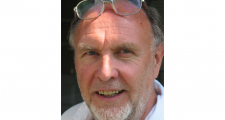His research into adoption left a lasting legacy

Alan died in July aged 79. Through his work as a social worker, as course director for the post qualifying course in mental health social work at the Institute of Psychiatry, and his research into adoption, he made an important contribution to the social work profession. He was among very few people who combined direct experience in social work, teaching social work practice and undertaking important research. This contribution was recognised when in 2014 he was appointed an OBE in recognition of services to adoption and children.
Alan qualified as a social worker at Sussex University having completed a psychology degree at Manchester University, and began working in Lambeth Social Services in 1970. In 1972 he and his then girlfriend, Andrée, moved to Canada where Alan provided counselling and family therapy for patients at Toronto East General Hospital as well as lecturing in social work at a local college.
On his return to the UK in 1976, Alan worked for Croydon Child Guidance Service until taking up a post at the Institute of Psychiatry in 1979 where he established the post qualifying course. He was based at the Maudsley Hospital in an office in the social work department. At the time I was a social work team manager and got to know Alan through becoming involved in the course management.
Students were very positive about the course. It was an opportunity to reflect on their work in busy local authorities and gave them access to excellent teaching from clinicians based at the Maudsley Hospital and Institute. Alan was brilliant at recruiting different disciplines, as well as experienced social workers, to teach on the course. He was a real advocate of evidence-based practice and introduced social workers to research methods in a non-threatening way, something usually lacking in social work education. Alan remained the course director until he retired in 2007.
He was an author, with others, of numerous books and papers about adoption and fostering. A major research project looked into the outcomes of 72 women who as babies in the 1960s were abandoned, or left to be found, in Hong Kong. After spending approximately two years in an orphanage they were transported to families in the UK where they were adopted by mainly white families. The availability of records relating to these adoptions offered a unique opportunity for their follow-up into mid-life.
This work provided important information on adoption outcomes and raised questions about inter-racial adoptions. Other major research projects were into studies of UK infant domestic adoptions followed up to adulthood, again providing important information. After retirement, Alan continued to be involved in adoption by becoming a trustee for a post-adoption service.
For many years Alan, other social work colleagues and I would meet regularly to discuss the latest developments in social work, or rather what we thought the latest developments should be! We were all very committed to improving skills and increasing research to inform good practice. Although there was a serious aspect to our meetings, there was always a good lunch and often music. Alan was an excellent pianist and guitarist and would play and sing with us. He enjoyed collaborating with people and had a talent for bringing people together.
Alan will also be remembered as a devoted husband, father and friend. He was married to Andrée for nearly 50 years and died just before their 50th wedding anniversary. He is survived by Andrée and their adopted children, Simon and Mary.
